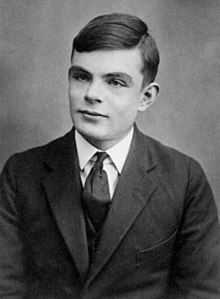Alan Turing - The Father of Computer Science

Alan Mathison Turing was born in London in 1912. He started being interested in mathematics and science when he was a boy. He had a miserable time in middle school, where he didn't manage to join other boys because he was shy, lonely, stuttering, and often wore untidy clothes. His talent only showed on his math score. But also in middle school, he met an important companion, Christopher Morcom, who has been described as Turing's "first love". Turing was attracted by Morcom's intelligence, and they spent a lot of time together. The good times did not last long, it was 2 weeks after Morocom was accepted by Cambridge that Morcom passed away from complications of multiple diseases. Turing endured great grief and set Cambridge as his goal and finally achieved it in order to fulfill Morcom's wishes. At that point, Turing felt his feelings for Morcom were more than just friendship, and he did not conceal his homosexuality since then.
In 1939 World War II broke out. Since then, Turing came to Bletchley, an unremarkable town in the south of England, to fight hard against the Germans. The German army was using Enigma, the most advanced cipher in the world at the time. There were 10^114 possible Enigma encryption results when not knowing the initial Enigma settings, and the Germans updated the Enigma settings every midnight. This meant that Turing and his team had only 24 hours to work out the answer from 10^114 possibilities. This was impossible with existed technologies, so the German army believed in Enigma that it was safe to communicate military information. It occurred to Turing that machines were good at repetitive searching, so he proposed to use machines to fight against machines, which was believed ridiculous by most of the team. So Turing wrote directly to Winston Churchill, the British prime minister, asking for support, which got approved. In this way, the world's first electronic computer was born. From then on German telegrams became completely transparent and this information played a crucial role in the major battles of World War II. Historians credit Turing's work with ending World War II at least two years earlier and saving at least 20 million lives.
Though Turing had great achievements in the war, he was sentenced to get compulsory treatment to his homosexuality. Tortured, Turing took poison and suicided at the age of 41. Turing lived a great live but died miserable, but his contribution will always be remembered.